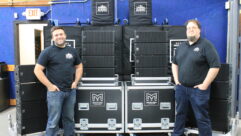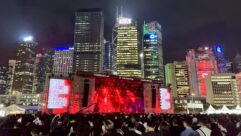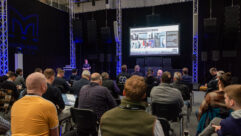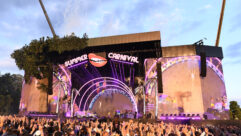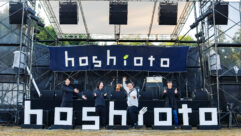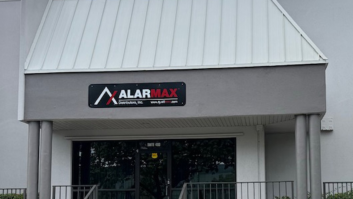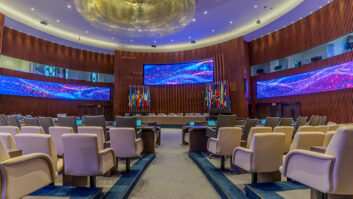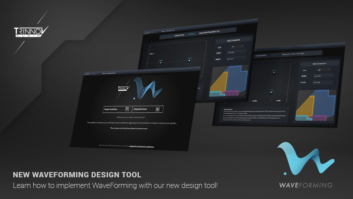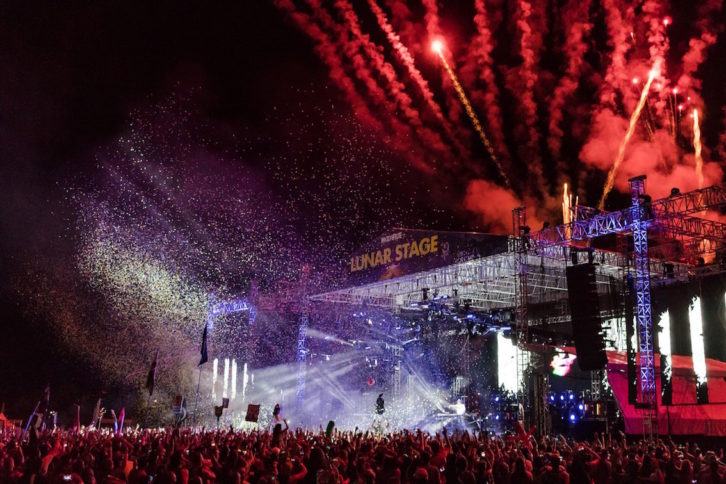
MHA Audio of Hagerstown, MD recently deployed Martin Audio MLA systems across four stages of Moonrise Festival in Baltimore, Maryland to tackle challenges of noise leakage into surrounding neighborhoods, while still maintaining high sound levels demanded by artist riders and the expectant festival crowd.
Moonrise Festival is an annual two-day electronic dance music (EDM) festival held at Pimlico Race Course and has been successfully running since 2014 with an average of 60,000 in attendance per year, putting Baltimore on the EDM map and attracting some of the biggest DJs in the world. However, the popularity of the festival and its genre of music present unique audio challenges given the venue’s close proximity to surrounding neighborhoods.
For the 2017 festival, the event’s organizers were tasked with developing a plan to limit noise nuisance to the residential communities around Pimlico Race Course, while still maintaining the quality that the festival has come to be known for.
The festival operates under three strict sound level criteria: levels at the perimeter must not exceed 85dB (C LAeq); levels in residential areas must conform to the Baltimore city code of 5dB (C LAeq) above ambient noise level; and finally, sound levels must be capable of 105dB (C) inside the venue in order to meet artist rider requirements. In order to monitor sound levels, twelve SPL meters were set up, eight within the concourse and four within key residential zones.
EDM music festivals require the most subsonic frequencies and among the highest sound levels of any live event. In order to provide the proper customer experience inside the venue, while at the same time limiting sound levels outside the venue as much as possible, a new approach to the sound system design and site layout was implemented this year.
Organizers approached Mike Scarfe, owner of MHA Audio, as they were aware of the success of MLA at other festival sites and he was confident of achieving the necessary results: “I was contacted back in May and was sent the site plans, noise restrictions and where the majority of the sound complaints had been generated the year before.
“Based upon my previous experience and discussions with the Martin Audio factory in England, I was confident that system designs primarily combining MLA multi-cellular speaker arrays with an MLX cardioid subwoofer package would meet all the requirements.”
A cardioid subwoofer configuration was deployed with some subtle variation on all four stages. In a typical subwoofer configuration bass frequencies are omnidirectional. No matter where the subwoofers are placed, the lowest sounds will always go towards the concert perimeter as much as they would go towards the audience. In an MLX cardioid subwoofer configuration, multiple subwoofers use careful spacing and digital signal processing to phase cancel frequencies to the sides and behind the speakers, allowing more control. Because of this capability, all four stages were able to be aimed away from the neighborhoods of Mt.Washington and Cylburn for this year’s festival.
Multi-cellular arrays differ from normal line arrays by combining many smaller speaker elements and advanced digital algorithms to provide custom control and even coverage exactly where desired, and virtually eliminate unwanted coverage in sensitive areas.
As Scarfe comments, “MLA is unique. It’s still the only system around that can optimize multiple sonic goals and truly deliver the sound across the audience required for any space, while mitigating sound leakage. Utilizing a multi-cellular array eliminates all but the loudest and lowest frequencies from leaving the concert area.”
Within the Pimlico Race Course, Moonrise festival featured four stages, two main stages – Stellar and Lunar – as well as the 300ft long Solar Dance Tent and Celestial Garden Stage.
The equipment list was extensive: Stellar comprised two main hangs of 12 MLA each side with 36 MLX subwoofers; Lunar stage featured 24 MLA and 24 MLX; 20 MLA Compact and 24 MLX were on Solar; and, finally, 20 W8LC line array elements and 24 WS218X subwoofers on Celestial.
To support the event, MHA called upon fellow MLA network partners, OSA International, Inc., who helped supply and manage the Stellar stage. Jim Risgin, Vice President of OSA, commented, “Martin Audio’s MLA system is the best choice for controlling sound in live events, especially in a situation like Moonrise that needs to decouple the festival from its surroundings. Festivals can lend a positive impact to local economies, but for them to be viable everyone from festival-goers to residents and from the planners to the city and local businesses need to be catered for appropriately and MLA solves the conundrum when dealing with sound leakage.”
The festival weekend itself saw thousands of mostly millennials descend upon the racetrack’s storied infield to watch more than 70 producers, DJs and musicians across the four stages. In its five-year history, 2017 was arguably Moonrise’s strongest line-up yet, with headliners like Kaskade, Afrojack, Zed’s Dead, Excision and Pretty Lights Live with Rap acts including Lil Uzi Vert and Run the Jewels injecting some additional variety.
The success of the event and MLA system design was clear. The effect was a near omnipresent throb of rattle-the-ribcages low-end, peaking well above the required 105dB, with an ecstatic and knowledgeable crowd pulsating to the set lists. Meanwhile, off site limits were met and noise complaints were at an all-time low.
According to Audio Engineer, Matthew Bittman, who provided analysis reports for Baltimore City Council: “The result of the new system design and layout was in total compliance with all sound objectives and restrictions for the 2017 festival. At no time did the perimeter approach the 85dB (C LAeq) limit, nor did any neighborhoods register 5dB (C LAeq) above ambient readings from Friday, prior to the festival’s opening. In addition, most of the complaints from the Mt. Washington and Cylburn neighborhoods were eliminated, and no complaints from Mt. Sinai hospital were received this year.”
Summing up, Bittman said, “These successes can be attributed to the new sound system, SPL monitoring system, and the re-orientation of the stages this year. It’s my clear recommendation that for next year both cardioid subwoofer and multi-cellular array technology should be used in order to remain within legal compliance.”
Photo Credit: © Anthony Washington
For more information, please click to:


